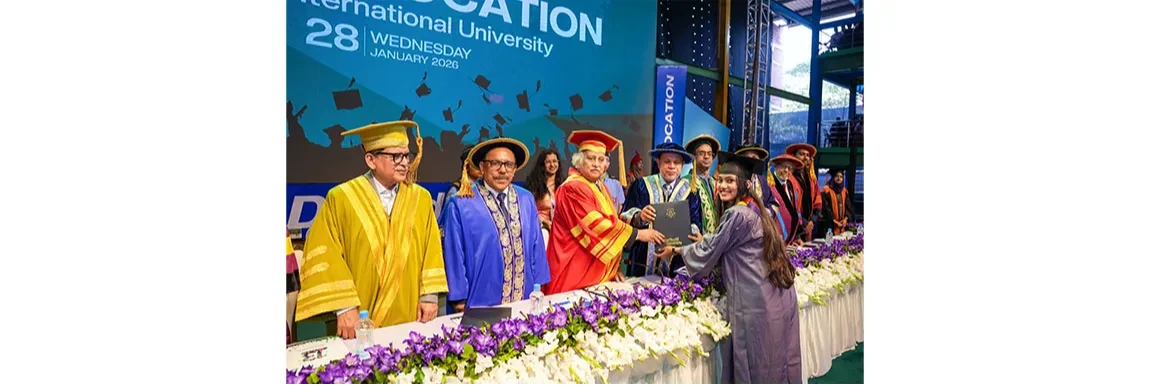Daffodil International University research report: Investing in local talent will ensure Bangladesh's economic future

Dr. Mohammad Nadir Bin Ali, Registrar, Professor Dr. Syed Mizanur Rahman Director of External Affairs, Mohammad Manjurul Haque Khan, Director of Career Development Center of Daffodil International University along with Chief Researcher Dr. Tanvir Abir Fittin at the Press Conference on titled “Bridging the Skills Divide: Addressing Foreign Labor Dependence and Manpower Shortage in Key Sectors of Bangladesh”
Dhaka, August 23, 2025: Bangladesh has opened up new horizons in economic development by achieving a stable GDP growth of more than 6 percent in the past decade. However, the biggest challenge in the transformation from an agrarian to an industrial economy has been the shortage of skilled human resources. Due to the lack of skilled local workers in high-growth sectors such as textiles, IT, finance and pharmaceuticals, Bangladesh has become increasingly dependent on foreign workers—currently about half a million foreign professionals work in mid- and high-level positions.
A recent study conducted by Daffodil International University under the leadership of Dr. Tanvir Abir found that despite the large number of university graduates, there is a serious shortage of technical knowledge, leadership, and problem-solving skills as required by the industry.
This information was disclosed at a press conference titled “Bridging the Skills Divide: Addressing Foreign Labor Dependence and Manpower Shortage in Key Sectors of Bangladesh” held at the Dipti Auditorium of Daffodil Plaza in Dhanmondi, Dhaka, on Saturday, August 23, 2025. The main paper was presented by the head of the research team, Dr. Tanvir Abir. The press conference was addressed by the Registrar of Daffodil International University, Dr. Mohammad Nadir Bin Ali, Director of External Affairs, Professor Dr. Syed Mizanur Rahman, Director of Career Development Center, Mohammad Manjurul Haque Khan, among others.
Key features of the study
• Sector-wise analysis: Skill shortages are clearly identified in the textile, IT, finance and pharmaceutical sectors.
• Foreign vs. local worker comparison: Employers prefer foreigners due to their technical skills and adaptability.
• Training needs: Hands-on training, industry-educational institution collaboration and curriculum modernization are identified as urgent.
• Graduate employability: The readiness of local graduates (average score 2.72 out of 4) is below industry expectations.
• Policy recommendations: National skills development framework, gender equality and incentives to retain local talent.
Impact on the economy
• Reducing dependence on foreign labor: Reducing billions of dollars in annual remittance outflows and increasing productivity.
• Increasing employment opportunities: Creating high-value jobs by developing the skills of locals.
• Stronger position in global competition: If the education structure is adjusted to the needs of the industry, there will be a new momentum in the export sector and investment.
• Social equality: Increasing women's participation will open the door to new possibilities in the labor market.
Limitations and Future Directions
Although the study is limited to the context of Bangladesh, it is proposed to gain a global perspective by including multinational comparative analysis in the future. It is especially important to identify skill needs in future-oriented sectors such as artificial intelligence, data science, blockchain, green energy and cybersecurity.
Funding Needs
The research team believes that without adequate investment in local talent development and training infrastructure, it is not possible to fill the skill gap. This will not only make the economy sustainable, but will also increase Bangladesh's global competitiveness manifold.
Above all, the study will serve as an effective roadmap for policymakers, academics and industry leaders—through which Bangladesh can move towards a self-reliant economy through the development of skilled human resources.


